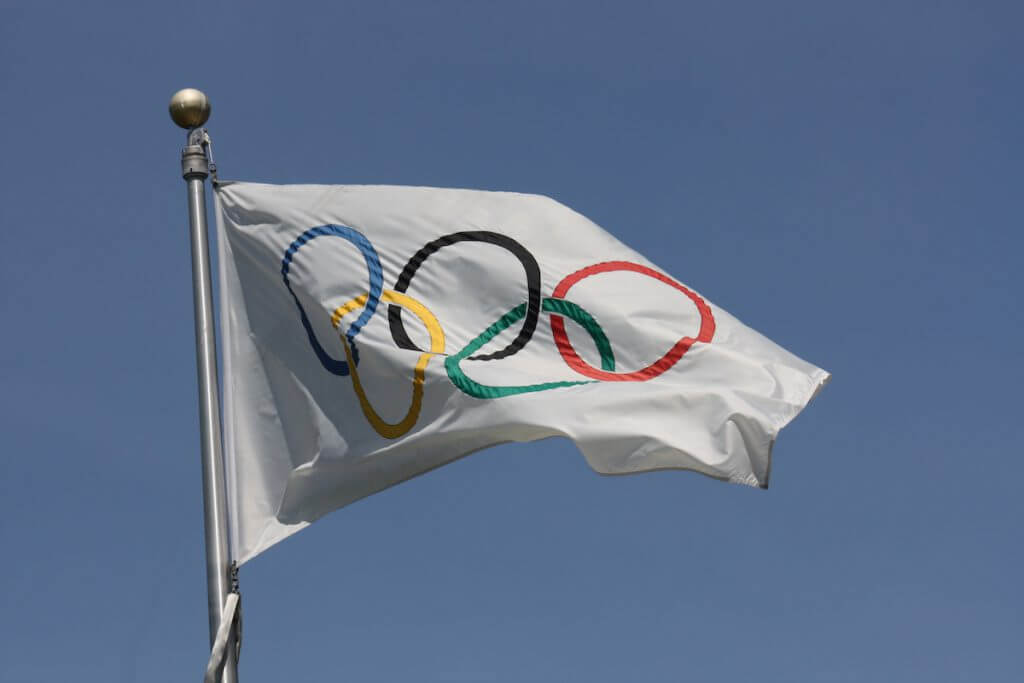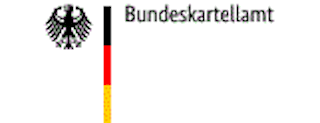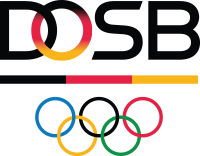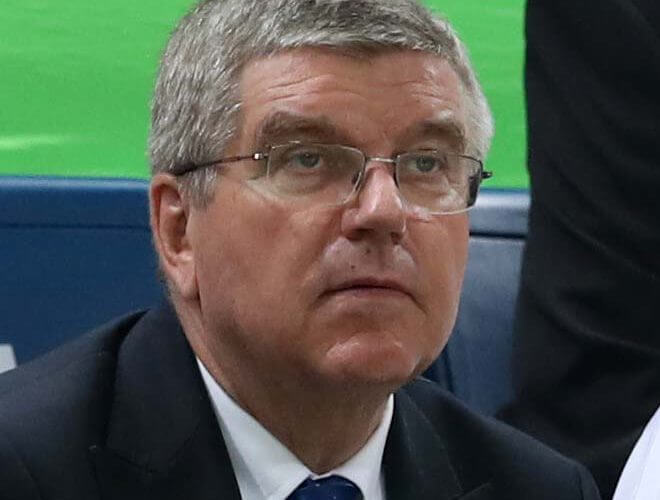IOC To Consult Members As EC Says Olympic Charter Must Change To Grant European Athletes Their Rights

Editorial content for the 2021 Tokyo Olympic Games coverage is sponsored by GMX7.
See full event coverage. Follow GMX7 on Instagram at @GMX7training #gmx7

European Commission competition authority Says Olympic Charter Must Change To Grant All European Athletes Their Rights
The International Olympic Committee (IOC) is to consult athletes, National Olympic Committees and other stakeholders after being “invited” by the European Commission (EC) to end its lock down on the rights of athletes during the Games.

Photo Courtesy: Bundeskartellamt
After a meeting of the two bodies last Friday, November 29, the EC has called on the IOC to roll out to all current nation European Union nations a German ruling from the Bundeskartellamt (the Federal Cartel Office) on February 27 this year that relaxed strong controls on athletes and their rights to capitalise on their success during an Olympics.
The move comes at the end of a year when the ‘Athlete’s Voice’ has become ever louder, the creation of the tentatively named Athletes’ Union for professional swimmers among developments that sports governors are likely to feel the weight from 2020 onwards.
The German ruling effectively ended the Olympic Charter‘s blanket lock down on the right of athletes to use their own image, likeness or endorse any of their sponsors for a period of 9 days before and up to three days after an Olympic Games unless those sponsors happened to be official Olympic partners.
Under the current Charter and Rule 40, Athletes are not only forced to render their backers unseen and unheard during the Olympics but they must also wear branding of Olympic partners generating income for the IOC even when those brands are in direct conflict with the companies funding the athletes.
The IOC points to its partner scheme as helpful to its coffers and the image of athletes, stating in a letter to National Olympic Committees:
“It is seen as major reason why companies are willing to sign up as part of the lucrative The Olympic Partner (TOP) sponsorship scheme which guarantees huge exposure during Games-time.”
The EC begs to differ with an arrangement that it says takes away the direct right of athletes to benefit from their own success and work. As such, it wants the Games-changing ruling from Germany extended to all EU nations (Britain’s competition authorities have already indicated that EU competition rules in force at the time of Brexit, should the nation proceed with leaving the the EU, will remain in force).
The IOC has responded to what it calls the EC “invitation” to extend the German ruling by issuing a letter to NOCs in which it explains why it does not fully agree with the EC position.
In its letter (in full below), the IOC says that it “believes that the Key Principles set out in the ‘Commercial Opportunities for Participants in the Tokyo 2020 Olympic Games’ represent a more appropriate and proportionate position, balancing the interests of athletes and funding of the global Olympic Movement.”
Some NOCs had “adopted various approaches: taking into account the IOC Key Principles, but judging the right approach for their teams, their funding model and their market”, the IOC suggests in a list of concerns it had about the EC position.
After the German ruling came into force, the IOC issued new guidelines on Rule 40 to NOCs. Those did not go nearly as far as the EC is now suggesting the IOC needs to go to comply with European law and avoid a competition challenge from European athletes.
The German Ruling

Photo Courtesy: DOSB
It was May 2018 when the Athletes Commission of the Der Deutsche Olympische Sportbund (German Olympic Sports Confederation – DOSB) wrote an open letter to fellow German Thomas Bach, the President of the IOC, demanding reform of Rule 40.
The relevant bye-law in the argument is paragraph 3 of the Olympic Charter. It states:
“Except as permitted by the IOC Executive Board, no competitor, coach, trainer or official who participates in the Olympic Games may allow his person, name, picture or sports performances to be used for advertising purposes during the Olympic Games”.
Essentially, athletes and their backers cannot use their images, likenesses, or engage in endorsement activity with their personal funders and supporters (unless those are an Olympic Partner) for a period of 9 days before a Games until three days after the closing ceremony of the same Olympics.
On February 27 this year, Germany’s competition authority ruled that such restrictions on advertising opportunities imposed by the DOSB and the IOC broke competition law and constituted “abusive conduct” towards athletes.
The impact of the ruling was far-reaching. It meant that:
- Athletes no longer had to notify their Olympic guardians of any advertising activities (existing or future contracts) they were linked to during the previously restrictive window of an Olympic Games (covering 9 days before and 3 days after the Olympics). Athletes and/or sponsors wishing to retain legal security with regard to such activities can achieve that by continuing to notify the DOSB of their relationships.
- Words and phrases previously barred from use, such as “medal”, “gold”, “silver”, “bronze”, “winter Games”, “summer Games” may now be used. There remains a list of forbidden terms, such as “Olympic Games”.
- Competition photographs take at the Games and previously barred are now allowed to be used by sponsors during the Games as long as no Olympic Rings and other official symbols are in the frame.
- Athletes can thank their sponsors on social media during the Games.
- In case of dispute over content used by an athlete, no sanction can be applied by sports authorities, including the Court of Arbitration for Sport, which is no longer has jurisdiction over such cases, which can only be heard by civil courts under the standard legal process of the German judicial system (or national equivalent in any nation when the ruling is rolled out beyond Germany).
While the IOC stated at the time of the German ruling that the Bundeskartellamt “recognized that there are legitimate reasons for restricting individual athletes’ advertising opportunities in order to ensure the ongoing organization of the Olympic Games”, it acknowledged that “Rule 40 at the national level necessarily has to take all applicable laws and regulations as well as pertinent case law into account, in this instance, particular German case law”.
Andreas Mundt, President of the Bundeskartellamt, noted as he extended the rights of German Olympians:
“While athletes are the key figures of Olympic Games, they cannot benefit directly from the IOC’s high advertising revenue generated with official Olympic sponsors. However, as the games mark the height of their sporting careers, self-marketing during the games plays a very important role. Our decision grants German athletes more leeway when it comes to marketing themselves during the Olympic Games, for example as far as the use of certain ‘Olympic’ terms or their pictures taken in sports events, or social media activities are concerned. Sports associations pursuing economic activities are also subject to competition law.”
The IOC letter to NOCs, December 3, in full
Dialogue with the European Commission in connection with the application of bye-law 3 to Rule 40 of the Olympic Charter

Thomas Bach – Photo Courtesy: Jeff Swinger-USA TODAY Sports
Dear Presidents,
Dear Secretary Generals,
As you are aware, the IOC has been in dialogue with the European Commission in connection with the application of bye-law 3 to Rule 40 of the Olympic Charter.
The Commission has invited the IOC to apply the DOSB approach (which followed the settlement with the German antitrust authority) across Europe. However, the IOC made it clear that it believes that the Key Principles set out in the “Commercial Opportunities for Participants in the Tokyo 2020 Olympic Games” represent a more appropriate and proportionate position, balancing the interests of athletes and funding of the global Olympic Movement. The IOC also explained that a number of NOCs have adopted various approaches: taking into account the IOC Key Principles, but judging the right approach for their teams, their funding model and their market.
The IOC met with the Commission last Friday, 29 November, to discuss their concerns. During this meeting, the IOC explained:
- NOCs are free to adopt local solutions that differ from the IOC Key Principles, to reflect their local laws and regulations, funding model, local market needs and the local athlete and sponsorship context. However, the IOC believes that the DOSB approach does not adequately protect the interests of all NOCs or their teams, the OCOGs to ensure continued funding of the Games, or the IOC and NOCs in ensuring global sponsorship funding.
- The IOC is preparing implementation materials for the IOC Key Principles,
including illustrative guidance and details of the online notification platform. The IOC will also use that opportunity to recommend to NOCs that, in principle, economic measures should be favoured as consequences of Rule 40 violations, rather than sports sanctions. The IOC will also explore the approaches of some NOCs to introduce contracts between athlete sponsors and the NOCs. - The IOC and many NOCs are concerned that some athletes consider that the Rule 40 framework unduly restricts their individual economic opportunities and rights. The IOC believes that the IOC Key Principles create the right and necessary balance between individual economic rights and the collective interest in solidarity (as confirmed by athletes at the International Athletes Forum in April 2019). However, we do of course recognise that different views exist.
The IOC will therefore organise a consultation to take place during 2020 – this will allow all views of athletes, of NOCs and of other stakeholder groups to be heard and take account of the practical experiences from the Tokyo Games.




